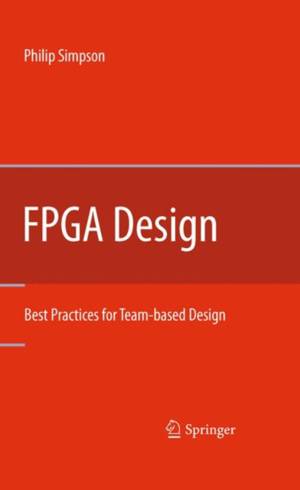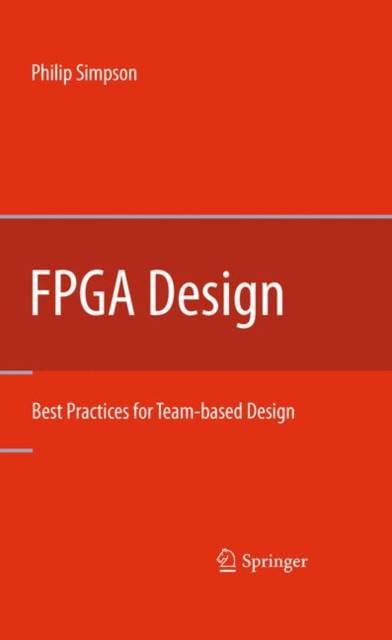
Bedankt voor het vertrouwen het afgelopen jaar! Om jou te bedanken bieden we GRATIS verzending (in België) aan op alles gedurende de hele maand januari.
- Afhalen na 1 uur in een winkel met voorraad
- Gratis thuislevering in België vanaf € 30
- Ruim aanbod met 7 miljoen producten
Bedankt voor het vertrouwen het afgelopen jaar! Om jou te bedanken bieden we GRATIS verzending (in België) aan op alles gedurende de hele maand januari.
- Afhalen na 1 uur in een winkel met voorraad
- Gratis thuislevering in België vanaf € 30
- Ruim aanbod met 7 miljoen producten
Zoeken
€ 167,95
+ 335 punten
Omschrijving
In August of 2006, an engineering VP from one of Altera's customers approached Misha Burich, VP of Engineering at Altera, asking for help in reliably being able to predict the cost, schedule and quality of system designs reliant on FPGA designs. At this time, I was responsible for defining the design flow requirements for the Altera design software and was tasked with investigating this further. As I worked with the customer to understand what worked and what did not work reliably in their FPGA design process, I noted that this problem was not unique to this one customer. The characteristics of the problem are shared by many Corporations that implement designs in FPGAs. The Corporation has many design teams at different locations and the success of the FPGA projects vary between the teams. There is a wide range of design experience across the teams. There is no working process for sharing design blocks between engineering teams. As I analyzed the data that I had received from hundreds of customer visits in the past, I noticed that design reuse among engineering teams was a challenge. I also noticed that many of the design teams at the same Companies and even within the same design team used different design methodologies. Altera had recently solved this problem as part of its own FPGA design software and IP development process.
Specificaties
Betrokkenen
- Auteur(s):
- Uitgeverij:
Inhoud
- Aantal bladzijden:
- 151
- Taal:
- Engels
Eigenschappen
- Productcode (EAN):
- 9781441963383
- Verschijningsdatum:
- 11/08/2010
- Uitvoering:
- Hardcover
- Formaat:
- Genaaid
- Afmetingen:
- 156 mm x 234 mm
- Gewicht:
- 412 g

Alleen bij Standaard Boekhandel
+ 335 punten op je klantenkaart van Standaard Boekhandel
Beoordelingen
We publiceren alleen reviews die voldoen aan de voorwaarden voor reviews. Bekijk onze voorwaarden voor reviews.









